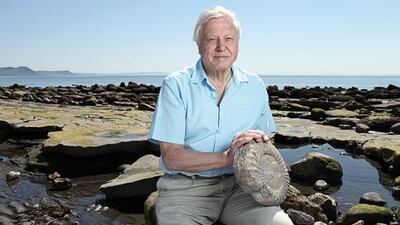Sir David Attenborough has attacked the British government over what he called its "short-sighted" plan to sell off broadcaster Channel 4.
On Wednesday it was revealed the UK's Department of Culture and Sport was launching a consultation which could put the TV station into private ownership to ensure its “future success and sustainability”.
In an open letter, the wildlife broadcaster claimed the move was a "political and financial" attack on the UK's public television networks.
The open letter - which was signed by former MI6 chief Sir John Sawers and novelist Sir Salman Rushdie - also said the review could threaten channels which currently promote "quality, diversity, innovation, respectful debate and trust”.
“The very public service principles that have served us so well are under severe threat – not only from the unregulated streaming services and ‘clickbait’ content of big tech companies, but also from government”, they said.
John Wittingdale, the government's minister for media and data, said changing Channel 4's remit would help protect the broadcaster from digital media competitors such as YouTube and Netflix.
"Channel 4 has been a great success. It has a very special place amongst the public service broadcasters", he told BBC Radio 4.
"We want to ensure Channel 4 has a long-term successful future and for that reason we think it is appropriate to look at the public ownership model.
"What we want is sustained success over the long term. There is no question that the audience share has been declining because of the strength of the new entrants".
Channel 4 was launched 39 years ago as an alternative to the BBC and ITV and is commercially successful, despite receiving no taxpayer support.
The advertising-funded channel was set up to provide challenging and distinctive programming for audiences underserved by traditional broadcasters.
Rather than making its own programmes, Channel 4 commissioned them from new companies, helping to establish Britain's successful independent TV production sector.
Channel 4 questioned the government's reasoning for the sale, saying it was financially in "rude health" and fulfilling its mandate.
But the government said Channel 4 was vulnerable to unstable advertising markets, and a move into private ownership with a changed remit could help to protect its future.
It said it would consult on bringing the regulation of video-on-demand services into line with broadcasters such as the BBC, ITV and Sky.
Digital Secretary Oliver Dowden said Britain's broadcasting rules dated back to the 20th century analogue age.
"The time has come to look at how we can unleash the potential of our public service broadcasters, while also making sure viewers and listeners consuming content on new formats are served by a fair and well-functioning system," Mr Dowden said.
"So we'll now be looking at how we can help make sure Channel 4 keeps its place at the heart of British broadcasting and level the playing field between broadcasters and video-on-demand services."
Channel 4's chief executive Alex Mahon said the broadcaster's ethos would be threatened by a sale.
"Our priority is about the impact we make on the public and the impact we make on the UK creative economy", Ms Mahon told a committee of politicians on Tuesday.
"It is not about the bottom line. So it means that we are always, in all the decisions we make, able to put public service before profit."
Previous governments have considered privatising Channel 4 but have backed down over concerns that it could damage the independent TV production sector.
Enders Analysis said it believed it would be difficult for Channel 4 to maintain its remit, such as championing unheard voices and taking bold creative risks, if it was privatised.
Channel 4 said on Tuesday its revenue in 2020 was "remarkably resilient", finishing the year down 5 per cent despite advertising plummeting during the coronavirus pandemic.
"We are clearly not struggling, we are in rude health," chairman Charles Gurassa told the committee.
The government said it would consult on its plans before proposals for legislation were set out in the autumn.



